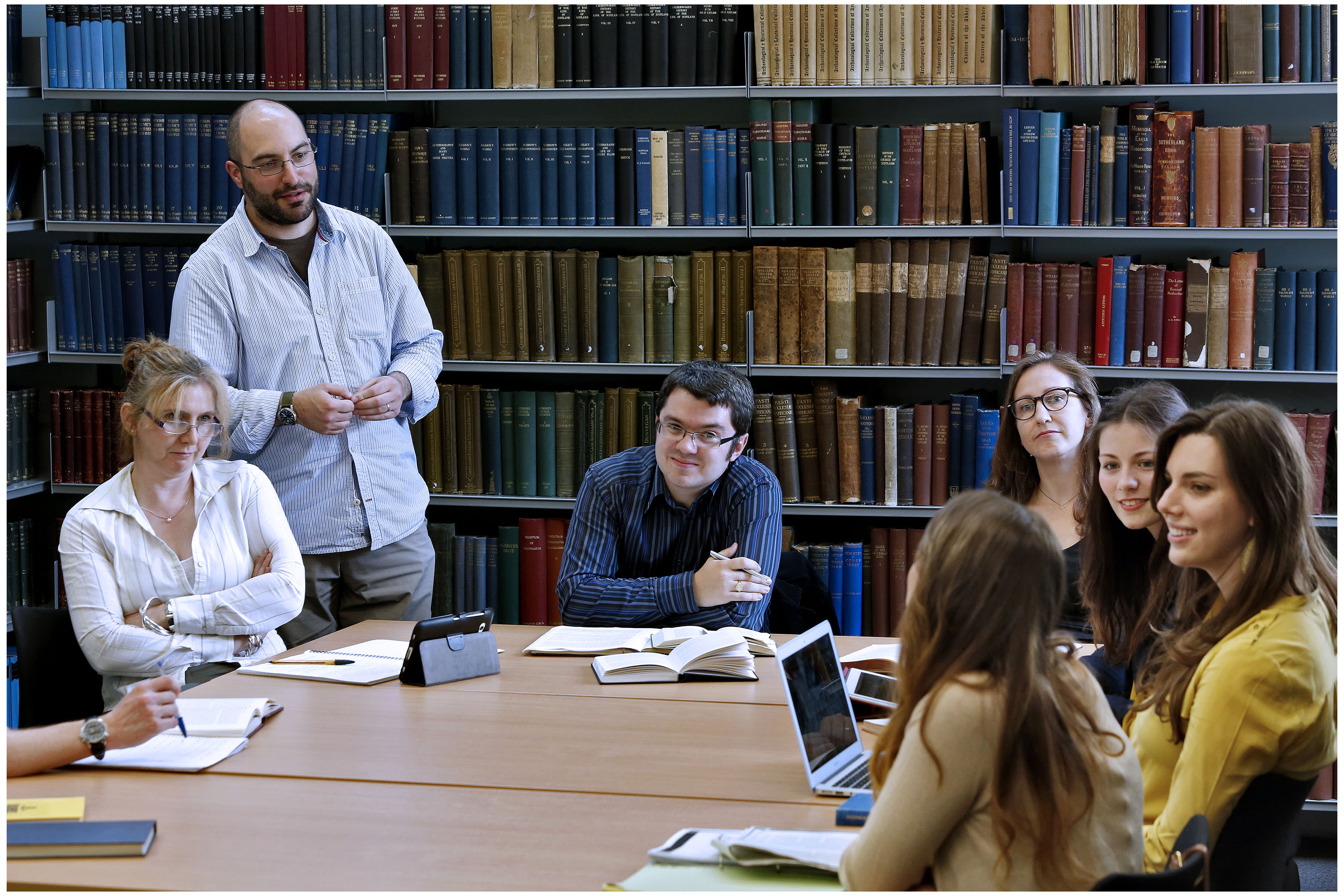
The University of Edinburgh - The School of History, Classics & Archaeology

Introduction
The School of History, Classics and Archaeology at the University of Edinburgh is one of the great world centres for the study of the human past.
The School comprises the three subject areas of History, Classics and Archaeology, together with the Centre for the Study of Modern Conflict, the Scottish Centre for Diaspora Studies and the Centre for Medieval and Renaissance Studies.
Excellence
The School's research quality was shown by the Research Excellence Framework 2014 when our submission to the History panel was rated third in the UK for the number of 'world-leading' and 'internationally excellent' researchers; Classics was rated fifth in the UK (Elsevier REF2014 Results Analysis).
Our community
There are over 90 academic staff, 38 administrative staff, 60 honorary professors and fellows, 300 graduate students and a current undergraduate population of 1,100 students, of whom around a quarter are international students.

Our building
The School of History, Classics and Archaeology occupies the West Wing of the Grade A-listed Old Medical Building, situated at the southern edge of the Old Town.
Designed by Edinburgh architect Robert Rowand Anderson (1834-1921), the Edinburgh Medical School, built 1876-86, and the McEwan Graduation Hall, its sister building, were major additions to the University campus. A competition for the design of the new building was opened in 1874 with six prominent architects submitted plans ranging in style from Gothic to Neo-Classical to Modernist. Ten professors of medicine and anatomy were unanimous in selecting Rowand Anderson as the winner, citing the functionality and aesthetic qualities of his design.
The building is in the Northern Italian Renaissance style, incorporating design influences from Venice and Bologna, including red-tiled roofs, a corbelled stair turret and palazzo frontages. Prior to submitting his competition entry, Rowand Anderson had taken a whirlwind tour of European medical schools, museums, palaces and churches for inspiration. A large campanile, or bell tower, as well as an integrated graduation hall, were omitted due to budget constraints reduced the former to a small bell on the north side of the courtyard and the McEwan Hall project was delayed until the 1890s.
In 1884, Anderson spoke of his design process, describing the popular Palladian style as too rigid and the Gothic unsuited to the scientific spirit of the age. "I have made use of that phase of art which arose in Italy during the second half of the fifteenth century when the great minds of that country began to burst the bonds of dogma and ecclesiastical authority and were determined to inquire into the nature of all things." For Anderson and for the professors who selected his winning design, the style of architecture was intended to aid and inspire the students, teachers and researchers who worked within its walls.
Recent renovations
Prior to the School of History, Classics and Archaeology moving into the building the interior of the West Wing was completely refurbished, at a cost of £14 million between March 2009 and August 2010. The large airy rooms overlooking Middle Meadow Walk now house postgraduate study rooms and the Jim McMillan Room, a common room for staff and postgraduate students named in honour of the previous head of the School. Other new additions include several archaeology labs, high-tech lecture theatres, dedicated study areas with fold-away workstations and housing School book collections.
A counterpoint to this modernity is a wide selection of artworks and artefacts from the School’s large collection, including statuary from the Classics cast collection, archaeological displays and historical documents. These now decorate many of the hallways, study spaces and informal meeting areas throughout the building.
Locations
- Edinburgh
William Robertson Wing Old Medical School 4 Teviot Pl, EH8 9AG, Edinburgh
Programs
- MSc in American History
- MSc in Ancient History
- MSc in Archaeology
- MSc in Classical Art & Archaeology
- MSc in Classics
- MSc in Contemporary History
- MSc in History
- MSc in History (Online Learning)
- MSc in Human Osteoarchaeology
- MSc in Medieval History
- MScR in Archaeology
- MScR in Classics
- MScR in Economic & Social History
- MScR in History
- MScR in Scottish History